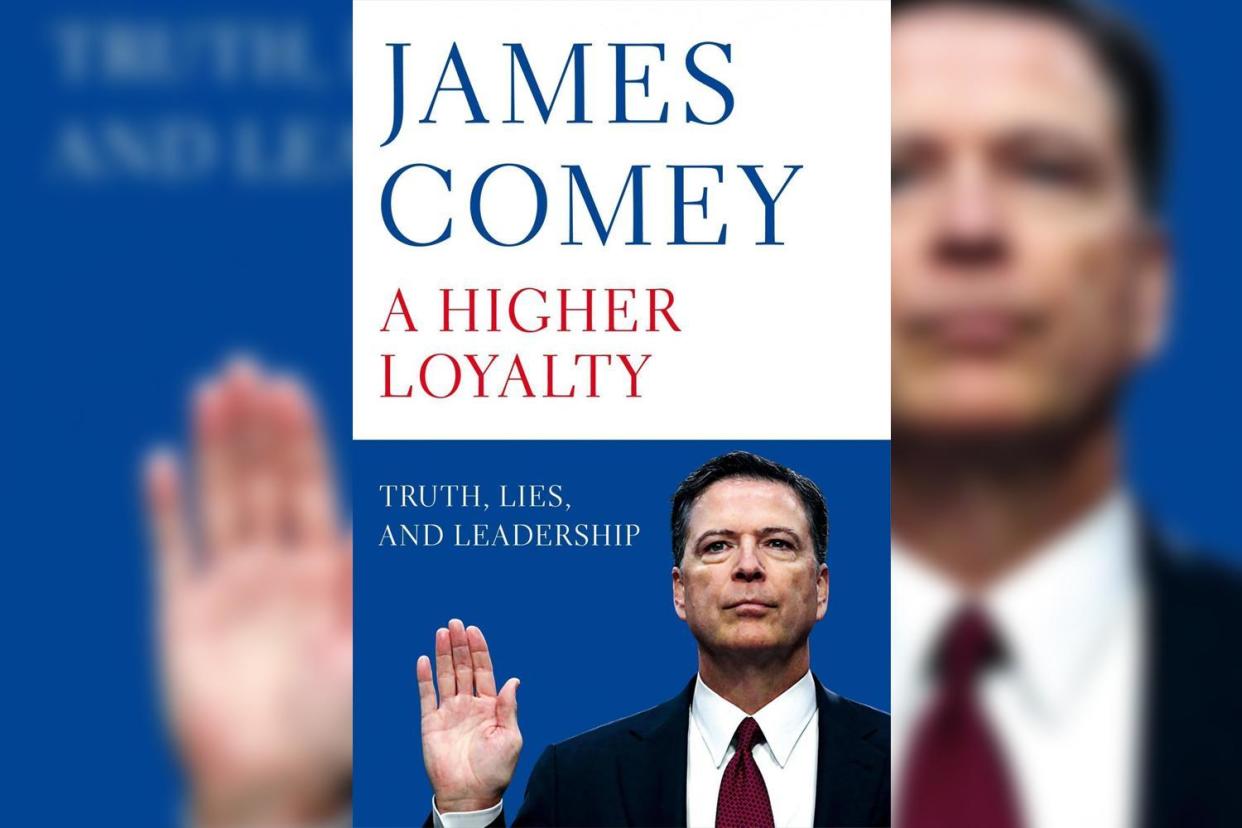A Higher Loyalty: Truth, Lies and Leadership by James Comey - review: The G-man gets his revenge on Trump

Donald Trump doesn’t appear in person until the final part of James Comey’s memoir. It’s a memorable appearance high up in Trump Tower soon after he was elected President. He looks to the then director of the FBI exactly as he does on television. A little shorter than he imagined and “slightly orange”, he had half-moons of white beneath his eyes, presumably left by tanning goggles, and with “impressively coiffed, bright blond hair”.
But his arrival is foreshadowed on almost every page of the book. The menace, the disregard for the law, the lying, these are the threats Comey spent most of his career battling as a prosecuting attorney and later as director of the FBI.
He presents himself as an old-fashioned G-Man, driven by the plain values of flag and family, the simple truths which can so easily be swamped by those in power. As a young lawyer in the early 1980s he was part of the team which brought down the mafia in New York. He interviewed the murderous goons who eventually gave up the information to bring down the bosses. He ate pasta with them and drank espressos.
“Evil has an ordinary face,” he writes. “It laughs, it cries, it rationalises, it makes great pasta. These killers were people who had crossed an indelible line in human experience by intentionally taking another life. They all constructed their own narrative to explain and justify their killing. None of them saw themselves as bad people.”
He ran into power again as a Department of Justice lawyer dealing with the Bush White House after 9/11. Vice President Dick Cheney and his team pushed for harsh interrogation of terrorism suspects and mass surveillance of citizens which Comey felt were excessive. He writes of being bullied as a boy at school and feeling that same sense of injustice when he encountered Cheney and his lawyers.
When it comes to Hillary Clinton and her campaign team being investigated for Clinton’s use of a private email server, Comey is baffled by their shifting explanations, the slow trickle of evidence, and their efforts to suppress what could have been a straightforward and easily resolved problem. Instead, the issue of Clinton’s private emails dragged on through the 2016 election. Comey’s decision to close, then re-open, the case as new evidence emerged shortly before election day was lambasted by Democrats, who blamed him for handing the White House to Trump.
One person who does emerge well from the book is Barack Obama. Comey clearly admires his intellect and his ability to listen and synthesize multiple points of view. It makes the shock of President Trump all the sharper.
Trump takes Comey back to his Mafia-chasing days. The clumsy efforts to ensure his “loyalty”. An attempt to hug him in a public White House ceremony, which Comey physically resists by tightening up the muscles on the right side of his body and twisting away. Trump offends all that Comey claims to hold dear about power in America and the values and institutions which merit his loyalty. Trump has shot back, but Comey has landed a stinger.
A Higher Loyalty: Truth, Lies and Leadership by James Comey (Macmillan, £20), buy it now

 Yahoo News
Yahoo News 
